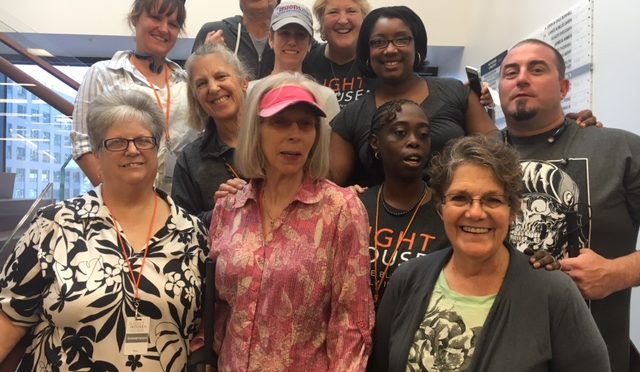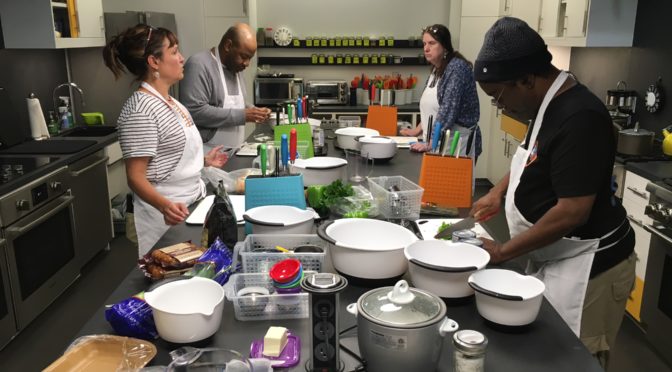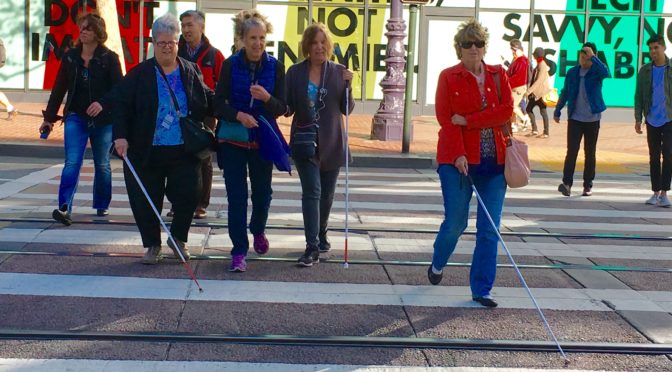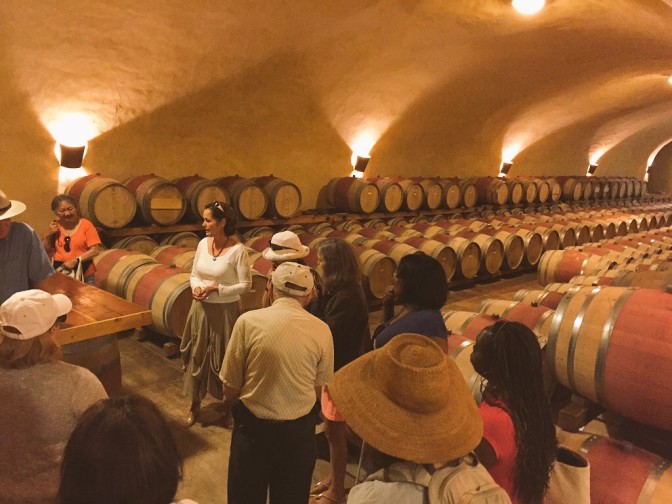Photo: Class Picture of the September CVCL Immersion Training Session 2 Class
Fall is a time for harvest and abundance. Over the past four years, 250 students have harvested their skills and received an abundance of support, opportunities to connect and a rich introduction to skills ranging from accessing print, learning about technology to organizing their households and traveling independently.
Holli Clark of Santa Cruz County has participated in both sessions and had this to say about her experience:
“Just a note to share my big thanks for the wonderful Immersion experience! One of my big reasons for wanting to go for Immersion training was because I just didn’t know what I didn’t know. I figured there were better ways of doing things than I had made up over the years. I was certainly correct in that, and am delighted to be learning many new skills. This translates to being more productive, efficient, confident, independent and safer. [The] week was packed with immeasurable value. I learned so much from each trainer and really appreciated your focus on scheduling us according to individual needs…Your staff are both exceptional trainers in their fields as well as wonderful, caring people.”
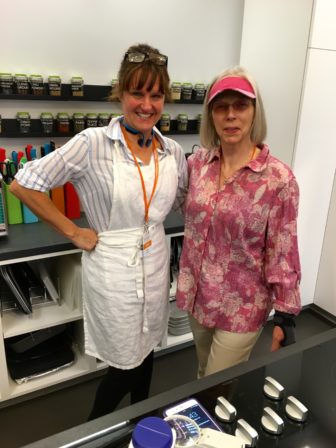
Photo: Cooking Instructor Sydney Ferrario and CVCL student Holli Clark stand together in the Betty Ruhland Teaching Kitchen at the LightHouse
We’re offering one last CVCL session before year’s end, and another in February. Details on both follow:
December Changing Vision Changing Life (CVCL) Immersion Training Session 2
This session is facilitated from the new LightHouse Building in the heart of San Francisco. The focus of this week’s training is “boots hit the ground in training”. Students participating in this week must have already received basic skills training in orientation and mobility, access technology or independent living and must be committed to focusing intently in all three of these skill areas in a small group and individual learning environment. (Please note: students do not need to have attended a previous CVCL session to attend CVCL 2 in San Francisco.)
This five day session is designed for students who are committed to full days of instruction, homework and practice in the evening and will take full advantage of the professional training time, mentoring and peer support and self-study that will be available.
Students will participate in a minimum of three of the following areas:
- Access Technology, including:
- Computer training (Mac or PC) – using the software you are currently learning
- Smart Phone Training – Apple or Android
- Tablet Training – Apple or Android
- Orientation and Mobility Training 1:1
- Introduction to Braille
- Smart Cooking for Independence
- Low Vision Training – Using your Tools to Your Benefit
- Independent living skills
When: CVCL 2 will run from Monday, December 5th (arrival at 9:30 a.m. – training starts at 10:00 a.m.) through Friday, December 9 (leave at 11:00 a.m.)
Where: The session will be held in our headquarters building at 1155 Market St., 10th Floor in San Francisco. Participants will stay overnight throughout the week in our Student Residences.
Cost: There is a $1,300 fee for this training but you may qualify for partial or full scholarship if you are not already working with the Department of Rehabilitation or the Veterans Administration. It is highly recommended that all students have a solution for taking notes, such as the Victor Reader Stream (training will be provided in how to use this recording device)
***
February Changing Vision Changing Life Immersion Training Session 1
This session is held at Enchanted Hills Retreat in Napa and is specifically geared for students new to blindness and low vision. For five days, up to 14 adult students have the opportunity to develop basic skills in a range of areas – access technology; orientation and mobility; organization and labeling; magnification and lighting; cooking; braille and community, state and national resources.
The week is full, active, emotional and supportive and students are given the opportunity to meet others, to harvest their own skills and determine the direction of the quality of their lives. There are three scholarship openings for persons 55 and better living in Humboldt, Del Norte, San Francisco, Marin or Alameda County who are not consumers of the Department of Rehabilitation or the VA. For those who are consumers of the Department of Rehabilitation, we encourage you to discuss this opportunity with your counselor.
When: CVCL I will run from February 6th – 10th.
Where: The session will be held in at Enchanted Hills Retreat in Napa. Participants will stay overnight throughout the week in our lakeside lodgings. Transportation is available from San Francisco, Berkeley and Marin County.
Cost: There is a $1,300 fee for this training but you may qualify for partial or full scholarship if you are not already working with the Department of Rehabilitation or the Veterans Administration.
***
For More Information, to Register for Session 1 or Session 2, or if you have questions, please contact Debbie Bacon at dbacon@lighthouse-sf.org or 415-694-7357 in San Francisco; Jeff Carlson at jcarlson@lighthouse-sf.org or 415-258-8496 in Marin County or Janet Pomerantz at jpomerantz@lighthouse-sf.org or 707-268-5646 in Humboldt County.

